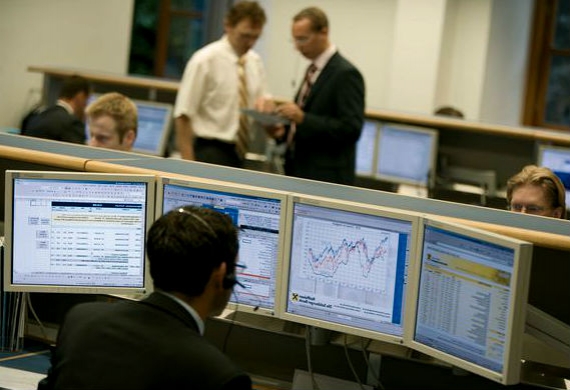
Britain's top share index came under pressure once again on Wednesday, giving up the gains it had made in 2017 as sterling held close to a six-and-a-half-month high after Prime Minister Theresa May called for a snap general election.
The blue chip FTSE 100 index was down 0.1% at 7,143.37 points by 0927 GMT, bucking a broadly positive trend on European markets, while the UK mid caps gained 0.9%.
On Tuesday May made a surprise announcement that she wanted to hold an early election on June 8.
This sent sterling to its highest level since early October on the hopes that a stronger majority for May, who leads the opposition Labour party by 21 points in opinion polls, will deliver a more orderly exit from the European Union.
The British parliament was expected to formally approve May's plan later on Wednesday.
Sterling's rise, however, weighed on the FTSE 100's predominantly dollar-earning constituents, which have enjoyed a rally since the June referendum last year when the UK voted to leave the European Union.
Heavyweight oil firms Royal Dutch Shell and BP fell, down 1.4% and 0.5% respectively.
Luxury goods firm Burberry was the biggest faller, dropping more than 5%. It was set for its biggest one-day loss since October after reporting a slight slowdown in its fourth-quarter comparable sales growth rate.
"There is a small slowdown in Q4 Retail LFL (like-for-like) sales over Q3 ... which may give the market pause for thought," analysts at Liberum said in a note.
"News of a snap UK election has seen a strong rally in GBP. Should this continue towards polling day Burberry's own, FX-driven rally could disintegrate. We urge investors to take profits and sell from a position of relative strength."
More domestically exposed firms, however, such as grocers Sainsbury, Marks & Spencer and Primark-owner Associated British Foods, were among the top gainers, all up between 2.2% to 3.4%.
"The interesting second-order effect from the sterling move is the inflation story because that's been a big concern, particularly on the consumer-facing stocks ... (because) of what it does to their input costs," Peel Hunt strategist Ian Williams said.
"Historically the sectors that do relatively well when sterling is rising tend to be ... the more domestic-focused ones, so real estate, retail."
Likewise Britain's FTSE 250, whose firms have a greater exposure to the domestic economy, nearly recovered the previous session's losses and held close to record highs.
Defence stock Cobham slumped 9% after 683 million new shares were added to trading in its rights issue. (Reuters)
Source: www.businessworld.ie

















